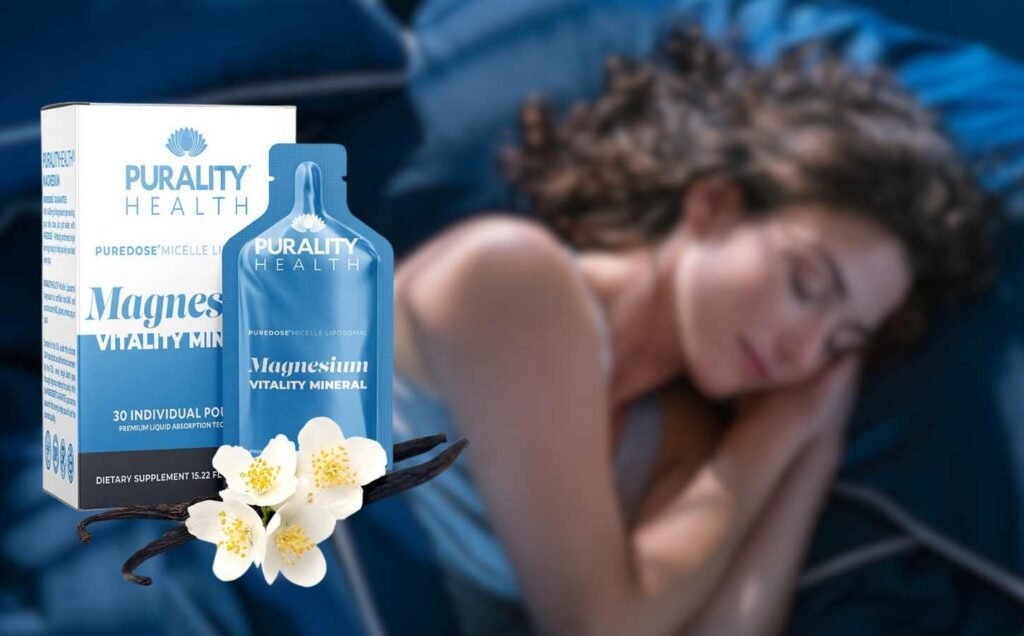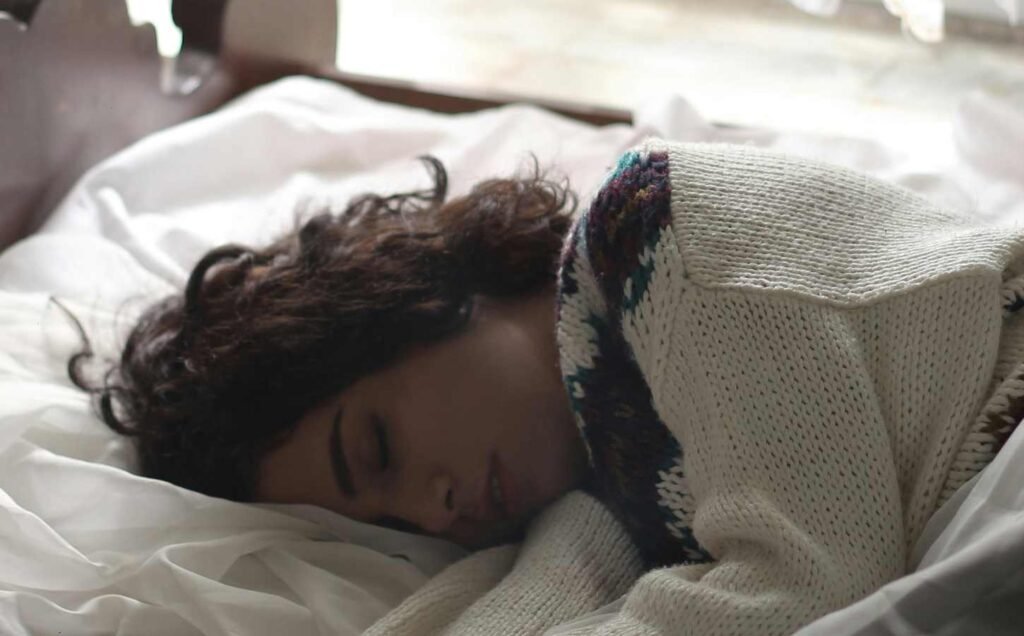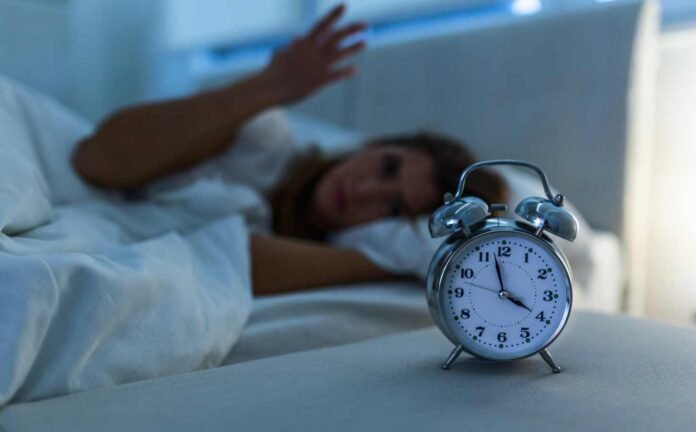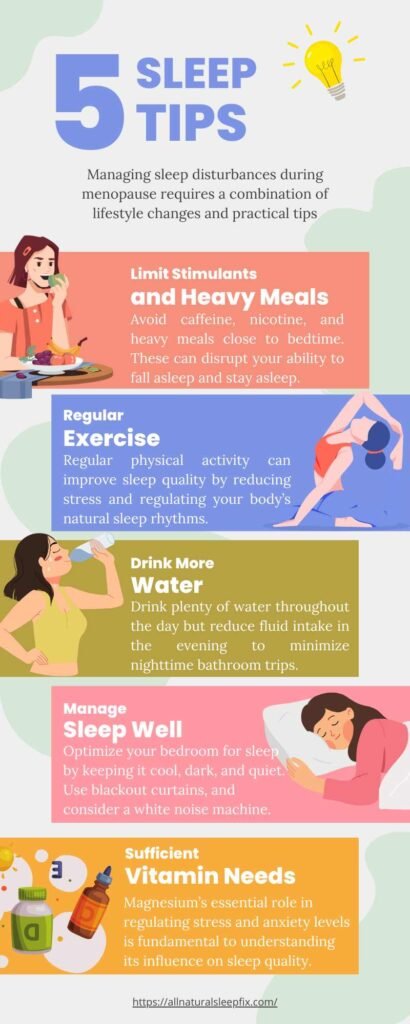Menopause is a big change in a woman’s life and comes with many physical and emotional changes
One of the most common and annoying symptoms of menopause is sleep disturbances. Understanding the connection between menopause and sleep deprivation is key to managing this tough time. In this article, we will look at how menopause affects sleep and give you practical tips to sleep better.
Navigating Menopause: Understanding and Addressing Sleep Disturbances
Among all the challenges menopause brings, sleep disturbances are the most profound and common. These look like frequent wakings, long periods of being awake after falling asleep, difficulty falling asleep and overall sleep quality decline. These sleep problems are mainly due to the hormonal changes of menopause, mainly the drop in estrogen and progesterone levels.
Estrogen, for example, is closely related to sleep regulation, sleep architecture and REM sleep. The effects of these sleep disturbances go beyond just being tired. They impair cognitive functions like memory and attention and disrupt mood regulation causing irritability or depression and overall quality of life. Furthermore, sleep deprivation can also worsen other menopausal symptoms creating a vicious cycle of discomfort and insomnia.
And the fluctuation and drop in estrogen levels can also cause other physiological changes that affect sleep such as sleep disorders like sleep apnea and restless legs syndrome and worsening of insomnia. Hot flashes and night sweats, menopausal symptoms par excellence, also disrupt sleep by causing sudden awakenings and difficulty falling back asleep.
The relationship between menopause and sleep quality is complex and bidirectional, hormonal changes cause sleep disturbances which in turn worsen menopausal symptoms. So addressing these sleep issues is key to improving life quality during menopause, that’s why we need targeted strategies to mitigate sleep disturbances and overall well-being during this transition.
How Menopause Affects Sleep
Menopause is the end of a woman’s menstrual cycles, usually between the ages of 45 to 55. During this time the body goes through hormonal changes that can affect sleep quality big time. Key factors that contribute to sleep disturbances during menopause:
- Hormonal Changes: The drop in estrogen and progesterone levels during menopause can cause many sleep issues. Estrogen helps regulate sleep by maintaining serotonin levels, while progesterone has a sleep inducing effect. When they drop, you can’t fall asleep and stay asleep.
- Hot Flashes and Night Sweats: Hot flashes are sudden feelings of intense heat, often with sweating and a racing heart. When they happen at night, they are called night sweats. Both can disrupt sleep and wake you up many times.
- Mood Swings and Anxiety: Hormonal changes during menopause can cause mood swings, anxiety and depression, all of which can affect sleep. Stress and worry can make it hard to relax and fall asleep.
- Sleep Disorders: Menopause can worsen existing sleep disorders like insomnia, sleep apnea and restless legs syndrome, making it harder to sleep soundly.
Incorporating Healthy Habits and Environmental Adjustments for Better Sleep
Making lifestyle changes can make a big difference to sleep during menopause when many women are struggling with sleep. Creating a bedroom environment that is relaxing and comfortable is key.
That means keeping the bedroom cool, dark, and quiet. For example, blackout curtains can block out street lights that can interrupt the body’s sleep cycle, a white noise machine can mask background noise, and setting the thermostat to a slightly cooler temperature can counteract night sweats, a common menopausal symptom that can disrupt sleep.
- ❤20 Non-Looping Sleep Sounds: White noise ,Brown noise, pink noise, blue noise, fan,brook, rain, ocean,bird and Bonfire,suitable for for Baby and Kids and Adults.
- ❤Precise Volume & Timer Settings:With 32 Levels of Volume ,it is perfect for baby sleeping .And you can set 1 hour,2 hours,3 hours,4 hours,5 hours and continuous play,control the comfort level for your own environment.
- ❤Unique Design: Solid-state design with 3.01inch*3.01inch *1.77inch,it is portable for home, office or travel,can give you a perfect sleep.
- ❤Function & Safety:Memory function automatically restores your previous volume, sound and time,it is powered by AC or USB.The machine is approved by FCC, CE and RoHS,don’t need to worry about accidents.
- ❤Any issue just don’t hesitate to contact us.We will try our best to help you!
As an Amazon.com Affiliate, we may earn a small commission if you buy from a link within this page.
Beyond environmental changes, incorporating regular physical activity into your daily routine can make a big difference to sleep. Exercise regulates mood and reduces stress, both of which are linked to sleep. Yoga and swimming provide physical exercise and relaxation, making it easier to fall asleep and stay asleep.
But don’t do vigorous exercise close to bedtime as it can energize the body and make it harder to fall asleep. Dietary habits also play a big role in sleep. Limit your caffeine intake and don’t eat a heavy or large meal within a couple of hours of bedtime as this can disrupt sleep.
Caffeine in coffee, tea, chocolate, and some sodas is a stimulant that will keep you awake, and eating a big meal can cause discomfort and indigestion and make it harder to fall asleep.
Together these lifestyle and home remedies can be the foundation for better sleep during menopause.
Tips to Sleep Better During Menopause
Managing sleep disturbances during menopause requires a combination of lifestyle changes and practical tips. Here are five tips to help you sleep better:
- Stick to a Consistent Sleep Schedule: Go to bed and wake up at the same time every day to regulate your body’s internal clock. Consistency reinforces your sleep wake cycle and makes it easier to fall asleep and wake up feeling fresh.
- Create a Sleep Conducive Environment: Optimize your bedroom for sleep by keeping it cool, dark, and quiet. Use blackout curtains to block out light and consider using a white noise machine to mask background noise. Investing in a comfortable mattress and pillows can make a big difference.
- Practice Relaxation Techniques: Incorporate relaxation practices like deep breathing exercises, meditation, or gentle yoga into your bedtime routine. These can calm the mind and body for sleep.
- Limit Stimulants and Heavy Meals: Avoid caffeine, nicotine, and heavy meals close to bedtime. These can disrupt your ability to fall asleep and stay asleep. Instead, opt for light snacks and herbal teas that promote relaxation.
- Stay Physically Active: Regular physical activity can improve sleep quality by reducing stress and regulating your body’s natural sleep rhythms. Aim for at least 30 minutes of moderate exercise most days of the week but avoid vigorous exercise close to bedtime.
More Tips to Manage Menopause Sleep Issues
In addition to the tips above, try these:
- Stay Hydrated: Drink plenty of water throughout the day but reduce fluid intake in the evening to minimize nighttime bathroom trips.
- Manage Hot Flashes: Dress in layers and use breathable bedding materials to stay cool at night. Keep a fan or cooling device by your bedside to manage night sweats.
- Consider Hormone Replacement Therapy (HRT): HRT can help with some menopause symptoms including sleep. Talk to your doctor to discuss the risks and benefits of this option.
- Seek Professional Help: If sleep problems persist despite your best efforts, see a sleep specialist or your doctor. They can offer more treatment and interventions tailored to your needs.
Learn more about menopause and sleep deprivation in this fact sheet, Sleep during the Menopausal Transition (PDF) which covers findings from the NIH-funded Study of Women’s Health Across the Nation.
Final Thoughts on Menopause and Sleep Deprivation
During menopause, women face specific challenges that can affect sleep and overall health. But with a holistic approach, you can mitigate the effects of menopause and sleep deprivation to improve sleep quality.
This means a combination of lifestyle changes like a regular sleep routine and making the bedroom comfortable and relaxing. Medical interventions when needed like HRT to address severe menopausal symptoms that are affecting sleep. And supportive therapies like CBT-I for non-pharmacological sleep pattern changes.
Regular physical activity can benefit menopausal women too. Exercise helps with weight management, stress reduction, and sleep quality. For example, gentle yoga or a walk in nature can be very effective in relaxing and preparing the body for rest.
Women should consult with healthcare professionals to get a plan that suits them and address any underlying sleep disorders. By prioritizing sleep health and getting the right support menopausal women can improve their overall life, balance their hormones, and navigate the menopause transition with more ease and comfort.
How PUREDOSE Micelle Liposomal Magnesium Can Help Menopausal Women with Sleeplessness
Menopausal women often struggle with sleepless nights due to hormonal changes which can really impact their quality of life. PUREDOSE Micelle Liposomal Magnesium is the answer to these sleep disturbances. Magnesium is known for its calming properties and its role in regulating sleep promoting neurotransmitters. PUREDOSE’s advanced micelle liposomal delivery system ensures the magnesium gets into the body more efficiently.
This supplement helps with insomnia by relaxing the nervous system, reducing muscle tension and promoting calmness making it easier to fall asleep and stay asleep. Magnesium also regulates melatonin the sleep wake cycle hormone which can be super helpful for menopausal women who are experiencing disrupted sleep patterns. By adding PUREDOSE Micelle Liposomal Magnesium to their daily routine menopausal women can get relief from sleeplessness and improve their overall sleep quality and overall well being during this transition.
PUREDOSE Micelle Liposomal Magnesium: Unlock Vitality and Restful Sleep – Review

PUREDOSE® Micelle Liposomal Magnesium isn’t just about magnesium; it’s about unlocking vitality, well-being, and the sweet embrace of a good night’s sleep!
Continue reading: PUREDOSE Micelle Liposomal Magnesium – Review
Reclaiming Deep Restful Sleep: The Magnesium Deficiency Solution

Magnesium’s role in sleep regulation is multifaceted, acting as a natural tranquilizer that helps deactivate adrenaline and calm the nervous system, facilitating more profound and restful sleep.
By facilitating a more natural sleep cycle without the reliance on external sleep inducers, magnesium supplements stand out as an effective and safer option for enhancing sleep quality and supporting the body’s internal sleep-wake cycles.
Continue reading: The Magnesium Deficiency Solution





